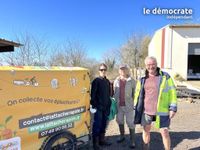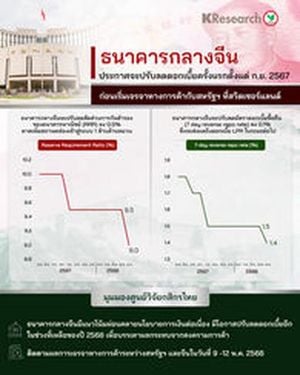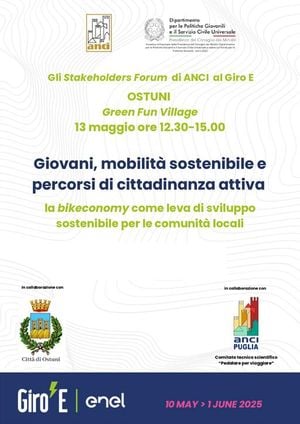In a significant move towards environmental excellence, the Conseil Départemental de la Dordogne is renewing its call for projects aimed at promoting circular economy initiatives in 2025. This initiative, which has been in place since 2021, is designed to support innovative and experimental projects that focus on reuse, recycling, repair, and renovation.
The primary objective of this renewed call is to encourage concrete actions that contribute to energy transition, waste reduction, and collective well-being. By fostering these initiatives, the Conseil Départemental aims to promote the efficient use of resources while minimizing environmental impact.
This year, associations within the Dordogne region are invited to submit their projects, provided they align with the core principles of the circular economy: sharing, reusing, repairing, renovating, and recycling. The challenge is clear: reduce the consumption of raw materials, limit waste production, and generalize best local practices.
To qualify, projects must present a minimum investment threshold of €15,000. The initiative will award four prizes, including a first prize of €7,000, a second prize of €5,000, a third prize of €3,000, and a special jury prize also valued at €5,000. Applications must be submitted by June 30, 2025, via the online platform demarches.dordogne.fr, which serves as the portal for departmental assistance aimed at individuals, associations, and local authorities.
Last year, four associations were recognized for their outstanding contributions to the circular economy. "Question de Culture" was awarded for creating a material library, while "L’attache Rapide" received accolades for its composting platform. The association "RAM DAM" was honored for establishing a departmental recycling center, and "Aide 24" won the special jury prize for its innovative project called "mousse." These projects exemplify the kind of innovative thinking that the Conseil Départemental is eager to support.
In a parallel effort to enhance agricultural practices, a training session recently took place in Vietnam, attended by 70 trainees from agricultural production cooperatives in Dong Hoi and Le Thuy District. This training focused on several key areas, including an overview of organic agriculture, standards and conditions for organic production in Vietnam, the circular economy in agriculture, and the agricultural value chain.
The curriculum also included practical guidance on developing production and business plans, as well as calculating economic efficiency. Additionally, participants were instructed on how to apply technology and digital transformation to supply chain management, which is crucial for modern agricultural practices.
The goal of this training session is to enhance the capabilities of the trainees, transforming their perspectives on eco-friendly agriculture, and encouraging innovative economic thinking. By integrating multiple values into their production systems, the trainees are expected to increase the added value of their agricultural outputs.
This dual approach—encouraging circular economy initiatives in Dordogne while enhancing agricultural education in Vietnam—highlights a growing recognition of the importance of sustainable practices across various sectors. As the world grapples with climate change and environmental degradation, such initiatives are vital for fostering a more sustainable future.
Both the Dordogne initiative and the training in Vietnam reflect a broader commitment to sustainability and innovation. By empowering local communities and organizations, these programs aim to create a ripple effect that can lead to significant environmental improvements.
As the deadline for project submissions in Dordogne approaches, there is an air of anticipation among local associations. Many are eager to present their innovative ideas that align with the principles of the circular economy. With the potential for financial support through the awarded prizes, these initiatives could pave the way for groundbreaking projects that not only benefit the local community but also contribute to global sustainability efforts.
In conclusion, the renewed call for projects by the Conseil Départemental de la Dordogne and the training session in Vietnam are both critical steps towards fostering a culture of sustainability. As communities come together to innovate and implement eco-friendly practices, the potential for positive change grows exponentially.




